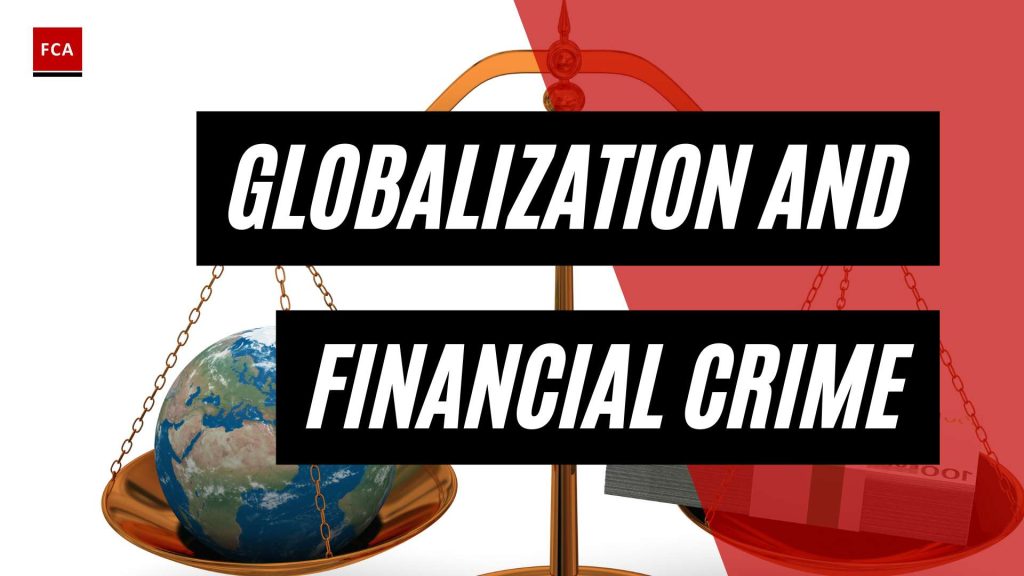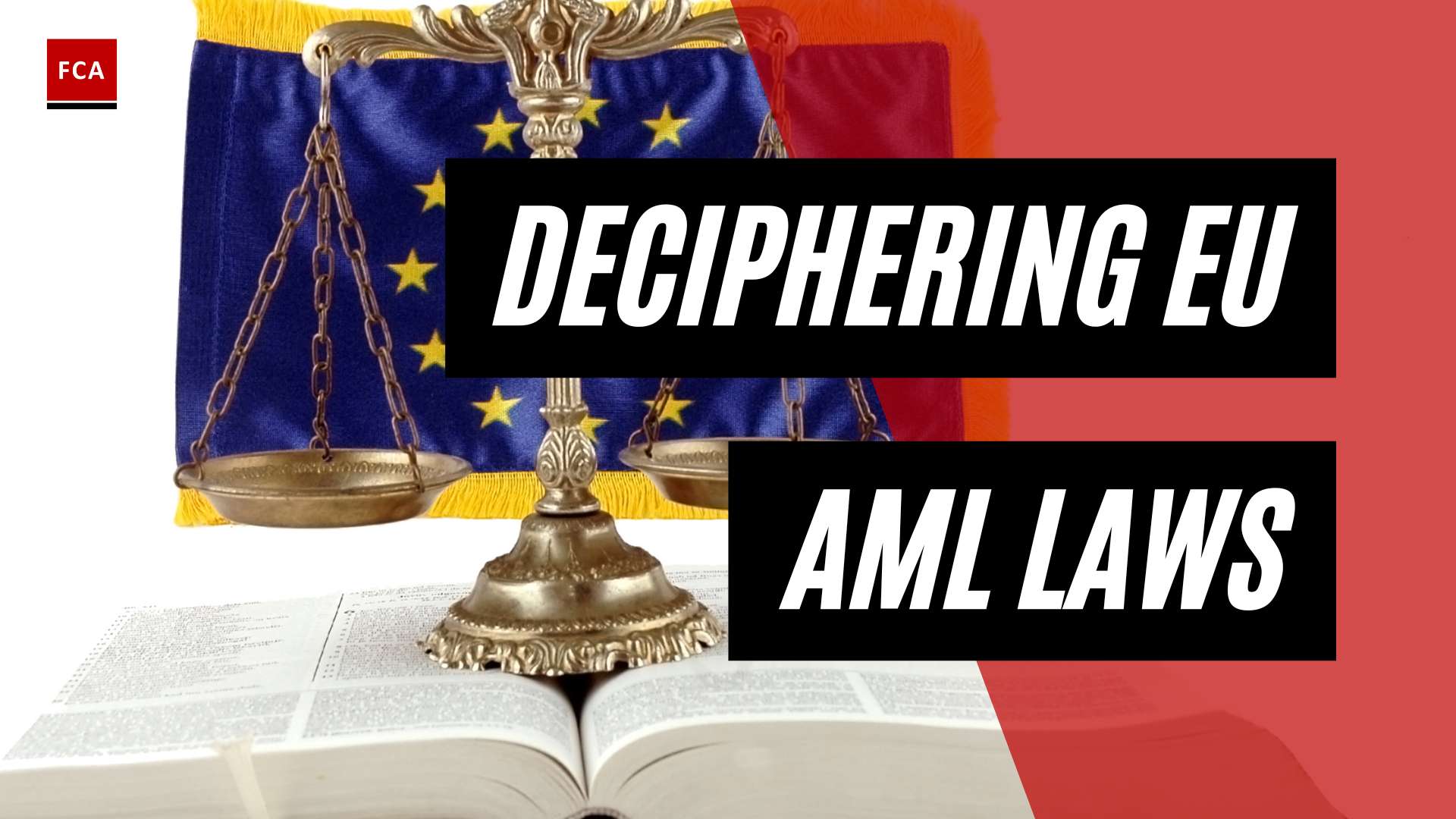The Impact of Globalization on Financial Crime
Globalization has significantly impacted the landscape of financial crime, presenting both challenges and opportunities for criminal activities. The interconnectedness of global financial systems and the exploitation of differences in regulations and governance structures have played a crucial role in shaping the dynamics of financial crime.
The Interconnectedness of Global Financial Systems
As a result of technological advances and globalization, the world’s financial systems have become increasingly interconnected. This interconnectedness has created new channels and opportunities for financial crime, such as money laundering, corruption, and tax evasion. Criminals can now move illicit funds quickly and flexibly across borders, taking advantage of the ease of moving money abroad and the seamless integration of the global financial system (World Bank).
The borderless nature of finance in a globalized world has made it easier for individuals and companies to conduct cross-border transactions and establish complex financial structures in multiple jurisdictions. This ease of movement has increased the challenges faced by law enforcement agencies in tracking and combating financial crime. Illicit financial flows can now move quickly and discreetly, making detection and prevention more difficult.
Exploiting Differences in Regulations and Governance Structures
Globalization has exposed differences in regulations, financial secrecy jurisdictions, and governance structures among countries. Criminals can exploit these differences to conduct illegal activities and evade detection. By moving funds through jurisdictions with weak regulations or financial secrecy, they can obscure the origins of the funds and make it harder for authorities to trace and recover illicit assets.
Moreover, the growth of international trade, foreign direct investment, cross-border banking, and international financial transactions, facilitated by globalization, has created opportunities for financial crime to flourish. Criminals take advantage of these economic activities to engage in money laundering, corruption, and other illicit financial activities.
To address the challenges posed by globalization and combat financial crime effectively, there is a need for enhanced international cooperation, strengthened regulatory frameworks, and improved information sharing. By collaborating among financial institutions, regulators, and law enforcement agencies, countries can work together to detect, investigate, and prevent financial crimes on a global scale. Additionally, efforts to strengthen regulatory frameworks and promote transparency in financial systems are crucial to closing the gaps that criminals exploit.
It is essential for policymakers, regulators, and financial institutions to stay vigilant, adapt to technological advancements, and continuously update their strategies to combat the evolving landscape of financial crime in an increasingly globalized world. By addressing the interconnectedness of financial systems and working together to close regulatory loopholes, the international community can make significant progress in confronting the global epidemic of financial crime.
Challenges in Combating Financial Crime in a Globalized World
As the world becomes increasingly globalized, the fight against financial crime faces unique challenges. Technological advances and the rise of digital financial transactions, along with increased complexity in tracking illicit financial movements, have created new hurdles for law enforcement and regulatory authorities.
Technological Advances and the Rise of Digital Financial Transactions
The advent of digital technologies and globalization has revolutionized the financial landscape, making it easier for individuals and companies to conduct transactions across borders. The ease and speed of transferring funds electronically have provided criminals with new opportunities for illicit activities. According to the World Bank, these advancements have facilitated the movement and concealment of illicit funds, posing challenges for detecting and preventing financial crime.
Criminals leverage online banking, digital payment systems, and cryptocurrencies to obscure the origins of illicit funds, making it more difficult for authorities to trace and investigate these transactions. The borderless nature of digital financial transactions allows illicit funds to move quickly and flexibly across jurisdictions, evading traditional detection methods. Law enforcement agencies and financial regulators must adapt their strategies and tools to keep pace with innovative criminal practices in the digital age.
Increased Complexity in Tracking Illicit Financial Movements
With globalization, financial transactions have become more intricate and intertwined. The interconnectedness of global financial systems creates a complex web of transactions and relationships that can be exploited by criminals. As the World Bank highlights, the movement of illicit funds has become increasingly sophisticated, taking advantage of differences in regulations, financial secrecy jurisdictions, and weak governance structures.
Tracking illicit financial movements in a globalized world requires enhanced capabilities and cooperation among law enforcement agencies, financial institutions, and regulatory bodies. The interconnected nature of financial systems necessitates effective information sharing and collaboration to identify and disrupt illicit activities. International organizations and regional bodies play a vital role in facilitating this cooperation and harmonizing efforts to combat financial crime.
To combat these challenges, policymakers, regulators, and law enforcement agencies must strengthen international cooperation, enhance transparency in financial systems, and promote the adoption of new technologies for monitoring and preventing illicit financial flows. By addressing the challenges posed by technological advancements and the complexities of tracking illicit financial movements, global efforts to combat financial crime can become more effective and robust.
The Role of International Cooperation in Combating Financial Crime
In the globalized world we live in, combating financial crime requires collaboration among financial institutions, regulators, and law enforcement agencies. The interconnected nature of global financial systems makes it essential to work together to detect, prevent, and prosecute illicit activities. Strengthening regulatory frameworks and enhancing information sharing are key components of international cooperation efforts in this fight against financial crime.
Collaboration Among Financial Institutions, Regulators, and Law Enforcement Agencies
Financial institutions play a crucial role in detecting and reporting suspicious activities that may be linked to financial crime. They are often the first line of defense against money laundering, fraud, and other illicit financial activities. Through collaboration with regulators and law enforcement agencies, financial institutions can share information, expertise, and best practices to enhance their ability to identify and prevent financial crime.
Regulators, on the other hand, are responsible for establishing and enforcing regulations that govern the financial industry. They play a critical role in ensuring that financial institutions comply with anti-money laundering (AML) and counter-terrorism financing (CFT) regulations. By collaborating with financial institutions and law enforcement agencies, regulators can stay informed about emerging risks and trends in financial crime, allowing them to adapt regulations and guidelines accordingly.
Law enforcement agencies are tasked with investigating and prosecuting financial crime. They work closely with financial institutions and regulators to gather evidence, track illicit financial flows, and bring perpetrators to justice. Collaborating with financial institutions and regulators enables law enforcement agencies to access valuable information and intelligence that can aid in their investigations.
Strengthening Regulatory Frameworks and Enhancing Information Sharing
To effectively combat financial crime, it is crucial to strengthen regulatory frameworks and enhance information sharing among relevant stakeholders. This includes:
-
Harmonizing AML/CFT Regulations: International bodies, such as the Financial Action Task Force (FATF), set global standards for AML/CFT regulations. Encouraging countries to adopt and implement these standards helps create a more consistent and robust regulatory environment, making it harder for criminals to exploit regulatory differences (IMF).
-
Improving Cross-Border Cooperation: Financial crime knows no borders, and cooperation between jurisdictions is essential. Mutual legal assistance treaties, extradition agreements, and other mechanisms facilitate the sharing of information and evidence across borders. This cooperation enhances the ability to track illicit financial movements and support international investigations.
-
Enhancing Information Sharing Platforms: Establishing secure information-sharing platforms, such as financial intelligence units (FIUs), allows for the exchange of financial intelligence among agencies. These platforms enable the timely sharing of suspicious activity reports, transaction data, and other relevant information, aiding in the detection and investigation of financial crime.
-
Promoting Public-Private Partnerships: Collaboration between the public and private sectors is crucial in the fight against financial crime. Public-private partnerships can facilitate information sharing, joint initiatives, and the development of innovative tools and technologies to combat illicit financial activities.
By working together and strengthening international cooperation, financial institutions, regulators, and law enforcement agencies can effectively combat financial crime in a globalized world. Enhancing regulatory frameworks, sharing information, and promoting collaboration are essential steps towards creating a more secure and resilient financial system.
The Link Between Globalization and Transnational Organized Crime
In the context of financial crime, globalization has facilitated the rise of transnational organized crime. Transnational organized crime refers to criminal activities that transcend cultural, social, linguistic, and geographical boundaries, operating without borders or rules. It is an ever-changing industry that adapts to markets and creates new forms of crime (UNODC).
The Ever-Changing Nature of Transnational Organized Crime
Transnational organized crime is a dynamic and evolving phenomenon. Criminal networks constantly adapt to exploit new opportunities, technologies, and vulnerabilities. They capitalize on the interconnectedness of global financial systems to conduct illicit activities such as drug trafficking, smuggling of migrants, human trafficking, money laundering, trafficking in firearms, counterfeit goods, wildlife and cultural property, and certain aspects of cybercrime (UNODC).
The flexibility and adaptability of transnational organized crime pose significant challenges for law enforcement and regulatory authorities. Criminal networks employ sophisticated techniques to evade detection, including the use of encrypted communication channels, money mules, and shell companies. These activities highlight the need for enhanced international cooperation and robust regulatory frameworks to combat financial crime in a globalized world.
Examples of Transnational Organized Crime Activities
Transnational organized crime activities have far-reaching consequences, affecting individuals, communities, and economies worldwide. Some notable examples of transnational organized crime activities include:
-
Drug Trafficking: Criminal organizations engage in the production, smuggling, and distribution of illicit drugs, fueling addiction, violence, and health problems. The drug trade generates substantial profits for criminal networks.
-
Smuggling of Migrants and Human Trafficking: Criminal networks exploit vulnerable individuals, facilitating the illegal movement of people across borders. This includes human trafficking for forced labor, sexual exploitation, and other forms of exploitation.
-
Money Laundering: Transnational organized crime relies on money laundering to disguise the illicit origins of their proceeds. Money laundering techniques include the use of front companies, complex financial transactions, and the integration of illicit funds into the legitimate economy.
-
Trafficking in Firearms: Criminal organizations engage in the illicit trade of firearms, contributing to armed violence, terrorism, and organized crime activities.
-
Counterfeit Goods: Criminal networks produce and distribute counterfeit products, undermining legitimate businesses and endangering consumer safety.
-
Wildlife and Cultural Property Trafficking: Transnational organized crime networks exploit the demand for illegal wildlife products and cultural artifacts, threatening biodiversity and cultural heritage.
These examples demonstrate the global reach and impact of transnational organized crime. The interconnectedness of global financial systems enables criminals to exploit differences in regulations, governance structures, and enforcement capacities across jurisdictions. To effectively combat transnational organized crime, international cooperation, information sharing, and coordination among financial institutions, regulators, and law enforcement agencies are crucial.
To address the challenges posed by transnational organized crime, global organizations such as the International Monetary Fund (IMF) and the Financial Action Task Force (FATF) play a vital role in setting global standards, promoting international cooperation, and supporting the implementation of robust anti-money laundering and counter-terrorism financing regimes. By working together, countries can mitigate the macroeconomic costs and social consequences associated with financial crime, ensuring a safer and more secure global financial system.
The Role of the IMF and FATF in Combating Financial Crime
In the global fight against financial crime, international organizations such as the International Monetary Fund (IMF) and the Financial Action Task Force on Money Laundering (FATF) play crucial roles. These organizations are at the forefront of setting global standards for anti-money laundering (AML) and countering the financing of terrorism (CFT), ensuring coordinated efforts across nations to combat financial crime.
Setting Global Standards for AML/CFT
The FATF, established in 1989, is primarily responsible for setting global standards for AML/CFT. By issuing recommendations that cover various sectors including the financial and non-financial sectors, the criminal justice system, transparency, and international cooperation mechanisms, the FATF provides a comprehensive framework to combat financial crime (IMF).
These recommendations serve as a guide for countries to develop and implement effective AML/CFT measures. The FATF regularly reviews and updates these standards to address emerging risks and challenges in the global landscape. Its recommendations are widely recognized and adopted by countries worldwide, ensuring a unified approach in the fight against financial crime.
Collaboration with International Organizations and Regional Bodies
The IMF actively collaborates with the FATF, the World Bank, the United Nations, and FATF-style regional bodies (FSRBs) to support national governments in creating effective AML/CFT regimes (IMF). These partnerships underscore the concerted international efforts to combat financial crimes on a global scale.
By working together, these organizations promote knowledge sharing, capacity development, and technical assistance to help countries strengthen their AML/CFT frameworks. They offer guidance and support to countries in implementing the FATF recommendations, conducting assessments, and enhancing supervisory and regulatory frameworks. This collaborative approach ensures a consistent and coordinated response to the challenges posed by financial crime.
The IMF, in particular, integrates AML/CFT considerations into its bilateral surveillance program, Financial Sector Assessment Program (FSAP), lending programs, and capacity development activities. Through these initiatives, the IMF evaluates countries’ compliance with international AML/CFT standards, provides policy advice, and supports countries in building robust AML/CFT frameworks.
The role of the IMF and FATF in combating financial crime is essential in fostering global cooperation and promoting effective AML/CFT measures. By setting standards, providing guidance, and facilitating collaboration, these organizations contribute to the global fight against financial crime and help safeguard the integrity of the global financial system.
The Macroeconomic Costs of Financial Crime
Financial crime, including money laundering, has significant macroeconomic costs that affect domestic economies and global stability. The adverse effects of financial crime are wide-ranging, impacting domestic revenues, development opportunities, financial stability, and the global economy.
Drain on Domestic Revenues and Development Opportunities
Financial crime poses a drain on domestic revenues and hampers development opportunities, particularly in regions where anti-money laundering and counter-financing of terrorism (AML/CFT) frameworks are inadequate. Criminal proceeds from abroad can flow into countries with weak AML/CFT frameworks, reducing investment rates, savings rates, and curbing development opportunities, especially in regions like Africa (IMF Blog). This drain on domestic revenues restricts economic growth, exacerbates poverty, and increases inequality. It also leads to the misallocation of resources and environmental degradation, further hampering sustainable development goals.
Implications for Financial Stability and Global Economy
Financial crime and illicit financial flows have implications for financial stability and the global economy. Inadequate AML/CFT frameworks in certain countries attract criminal proceeds from abroad, resulting in adverse impacts on financial systems. These impacts include weakened law and order, governance, regulatory effectiveness, foreign investments, and international capital flows. Criminals exploit the complexity of the global financial system, differences between national laws, and the speed at which money can cross borders to conceal their activities. The interconnectedness of financial systems worldwide makes it crucial to combat financial crime to maintain financial stability and safeguard the global economy.
To better understand the economic consequences of illicit financial flows, the International Monetary Fund (IMF) is expanding its data analytics capabilities. Recognizing the impacts on financial stability, economy, and global financial stability is essential for developing effective strategies to combat financial crime (IMF Blog). By addressing the macroeconomic costs of financial crime, countries can work towards creating robust AML/CFT frameworks, enhancing international cooperation, and strengthening regulatory measures to mitigate the adverse effects on domestic economies and the global financial system.
By understanding the drain on domestic revenues and development opportunities, as well as the implications for financial stability and the global economy, stakeholders can recognize the urgency and importance of combating financial crime. Collaboration among financial institutions, regulators, and law enforcement agencies, along with the strengthening of regulatory frameworks and enhanced information sharing, is crucial in developing effective strategies and frameworks to combat financial crime on a global scale.
The Role of Financial Intelligence Units in Combating Financial Crime
Financial Intelligence Units (FIUs) play a crucial role in the global efforts to combat financial crime. These specialized agencies are responsible for collecting, analyzing, and exchanging financial intelligence to support the detection and prevention of money laundering and other illicit financial activities. In this section, we will explore two key aspects of the role of FIUs in combating financial crime: exchanging financial intelligence among agencies and supporting the implementation of Anti-Money Laundering/Counter Financing of Terrorism (AML/CFT) regimes worldwide.
Exchanging Financial Intelligence Among Agencies
One of the primary functions of FIUs is to facilitate the exchange of financial intelligence among domestic and international agencies involved in combating financial crime. FIUs act as a central hub for receiving and disseminating suspicious transaction reports, currency transaction reports, and other relevant financial information. By fostering collaboration and information sharing, FIUs enhance the ability of law enforcement agencies, regulatory bodies, and financial institutions to detect and investigate financial crimes.
FinCEN, the Financial Crimes Enforcement Network, is one of the most active FIUs in the world in terms of exchanging information with counterpart FIUs. As the U.S. FIU, FinCEN is part of a worldwide network designed to exchange financial intelligence (FinCEN). FinCEN works closely with foreign governments to provide policy recommendations, guidance, training, and technological advice to foster the implementation of AML/CFT regimes worldwide. This collaboration supports bilateral and multilateral efforts to combat transnational crime.
Supporting Implementation of AML/CFT Regimes Worldwide
FIUs also play a crucial role in supporting the implementation of AML/CFT regimes worldwide. They provide assistance to other countries in developing and strengthening their AML/CFT frameworks. This support includes policy recommendations, guidance, analytical training, technological advice, and staff support. By sharing expertise and best practices, FIUs contribute to the global fight against financial crime.
FinCEN, as the U.S. FIU, actively supports the implementation of AML/CFT regimes globally. It works with foreign FIUs and international bodies to provide the necessary tools and support for the detection and deterrence of transnational organized crime. FinCEN exercises its authority under Section 311 of the USA PATRIOT Act to impose special measures on jurisdictions, financial institutions, or international transactions of primary money laundering concern. These measures enhance collaboration with law enforcement agencies, the intelligence community, foreign FIUs, and other authorities to combat transnational organized crime (FinCEN).
Through their efforts in exchanging financial intelligence and supporting the implementation of AML/CFT regimes worldwide, FIUs contribute to the global fight against financial crime. By fostering collaboration among agencies and promoting international cooperation, FIUs play a pivotal role in detecting, disrupting, and preventing illicit financial activities on a global scale.








